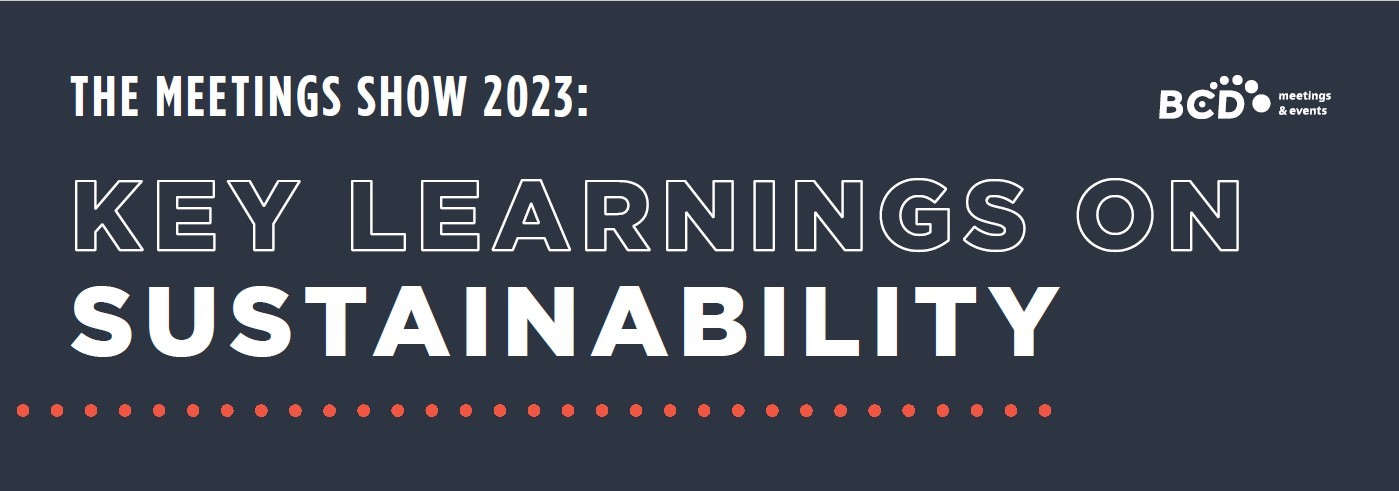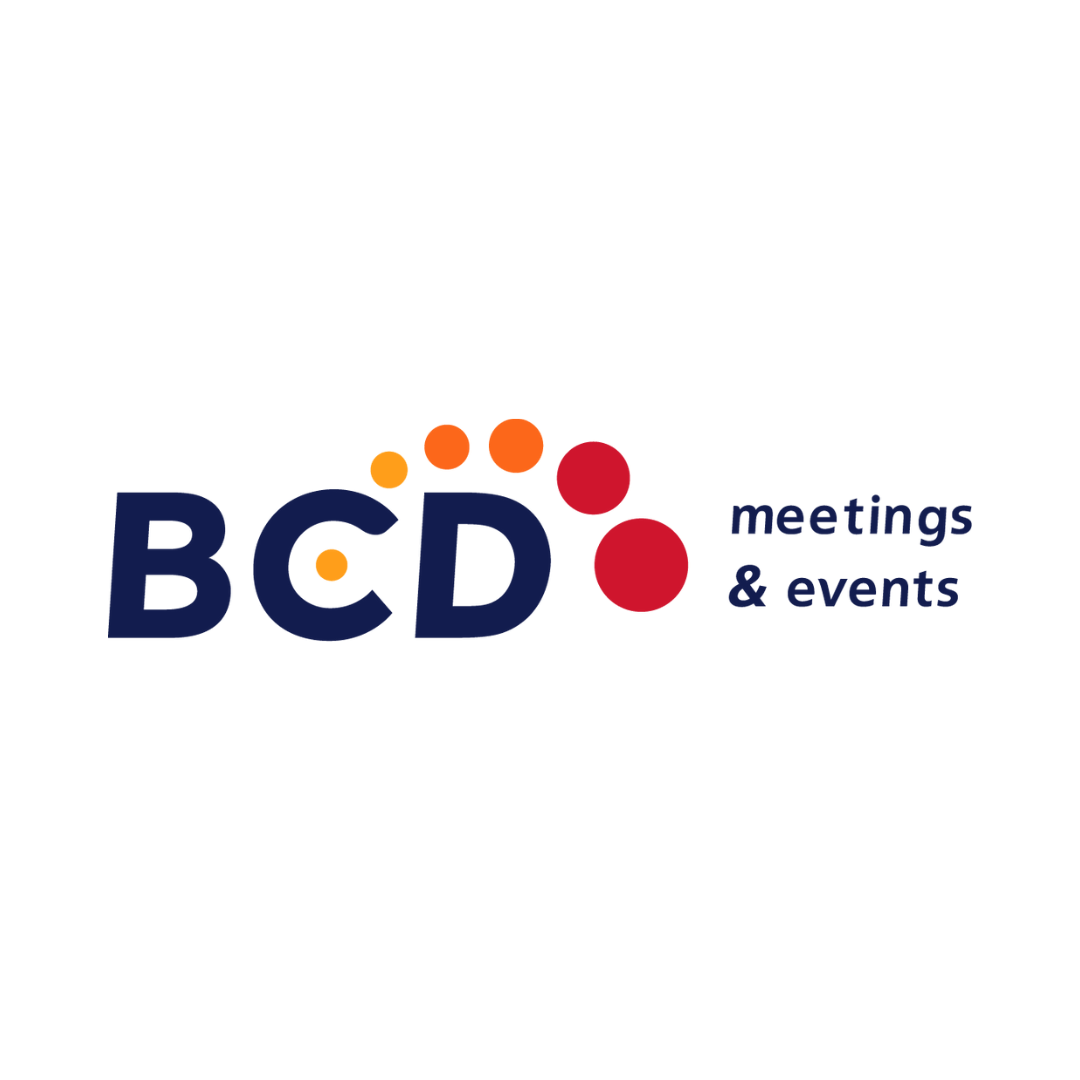BCD Meetings & Events recently participated in The Meetings Show 2023, in London, where we coordinated a series of roundtable discussions focused on the ever-important topic of sustainability. We had the privilege of engaging with industry leaders who shared their fresh perspectives and ambitious goals for a more sustainable future. In this article, we share their invaluable insights on four key challenges that need to be addressed in order to secure buy-in for your sustainable meetings and events.
The 4 key areas you need to address for more sustainable meetings and events
Mindset
One of the critical challenges in making meetings and events more sustainable is shifting the mindset of delegates and internal stakeholders. While younger generations are generally more environmentally inclined, leaders from older generations may often be perceived as blockers to progress. This gap can create resistance, especially among those who view sustainability initiatives as inconveniences rather than necessities. It’s crucial to approach this, not by resorting to scaremongering or greenwashing, but by clearly communicating the ‘why’ behind sustainability policies. Understanding and addressing the rationale can help dissolve resistance and make room for meaningful changes.
Additionally, planners must be aware that businesses will always have competing priorities, such as budget and time constraints, and these will differ vastly from country to country – especially for businesses with international operations. Many clients have head offices in different territories, each with their unique stance and guidelines on sustainability. This geographical diversity necessitates a more nuanced and adaptive approach to changing mindsets around sustainability.
Venues
The selection of venues and catering suppliers requires careful consideration, as these choices have a significant impact on the overall sustainability of a meeting or event. In today’s market, organisations are increasingly expected to have, or be in pursuit of, various sustainability accreditations. This is because buyers and participants are becoming more discerning, continually asking what sustainability really means to a business. The focus is not just on obtaining credentials but on presenting credible evidence that these sustainability policies are genuinely implemented. This isn’t always a straightforward or easy conversation – with the rise of public awareness and concern, these policies and the organisations enforcing them are under increasing scrutiny. Therefore, transparency and a dedicated approach to sustainability are critical when it comes to venue selection, as they significantly contribute to the integrity and success of the event as well as the reputation of the provider.
Education
As with most things in life, education is key. Your sustainability credentials will help to instill a culture of sustainability, however doing this effectively will rely heavily on educating everyone involved – from industry peers and internal stakeholders to individual delegates. It needs to be a collaborative effort, involving transparent dialogue between event planners, venues, and attendees. Make sure you dedicate some time to actively promoting the sustainability measures of your meeting or event and educating attendees about the benefits and impact of your approach. Keep it simple with visual aids and infographics, or consider using interactive elements that add moments of gamification and play, where possible. Clearly labelling various aspects of your event as ‘sustainable’ or ‘eco-friendly’ will also help communicate your green efforts and achievements.
Many organisations now include a dedicated sustainability page on their event websites or intranets, offering a deeper dive into specific practices, such as going paperless or offering vegetarian meal options. These platforms can be used as an educational tool to inform participants of an event’s commitment to sustainability, whilst also inspiring others to do the same.
Food
The fourth key area to address is the realm of food, an area where sustainability measures can have a dramatic impact. A growing number of events are shifting toward a plant-forward approach to menus, recognizing the lower carbon footprint of plant-based, seasonal foods in comparison to meat-based options. When meat is offered, the focus is increasingly on less carbon-intensive choices; for example, opting for chicken over beef, which is approximately 500% more carbon-intensive. However, the challenge doesn’t end with menu selection – waste management remains a pressing concern. Organisers are more frequently pushing back on venues to address the issue of food waste. One emerging solution is to manage portions more carefully, with many events moving away from buffet-style to a-la-carte serving to minimise waste. Additionally, labelling food with its carbon footprint offers an opportunity to empower delegates, putting the choice and, consequently, the impact directly in their hands.
Related Article: Sustainable event planning: The power of local culture
Sustainability in the meetings and events industry is not just a trend, but an imperative. From shifting mindsets and making informed venue choices to educating stakeholders and rethinking steak options on your food menus, there are multiple dimensions to consider. To delve deeper into the rich insights and discussions from our recent roundtable event, we invite you to review the complete Key Learnings sheet, linked below. It covers additional topics, including Scope 3, that can strengthen your approach to delivering more sustainable meetings and events.
View the complete Key Learnings sheet here
Originally published Sep 15, 2023 7:06:22 AM
Last updated on Oct 12, 2023 10:46:53 AM




